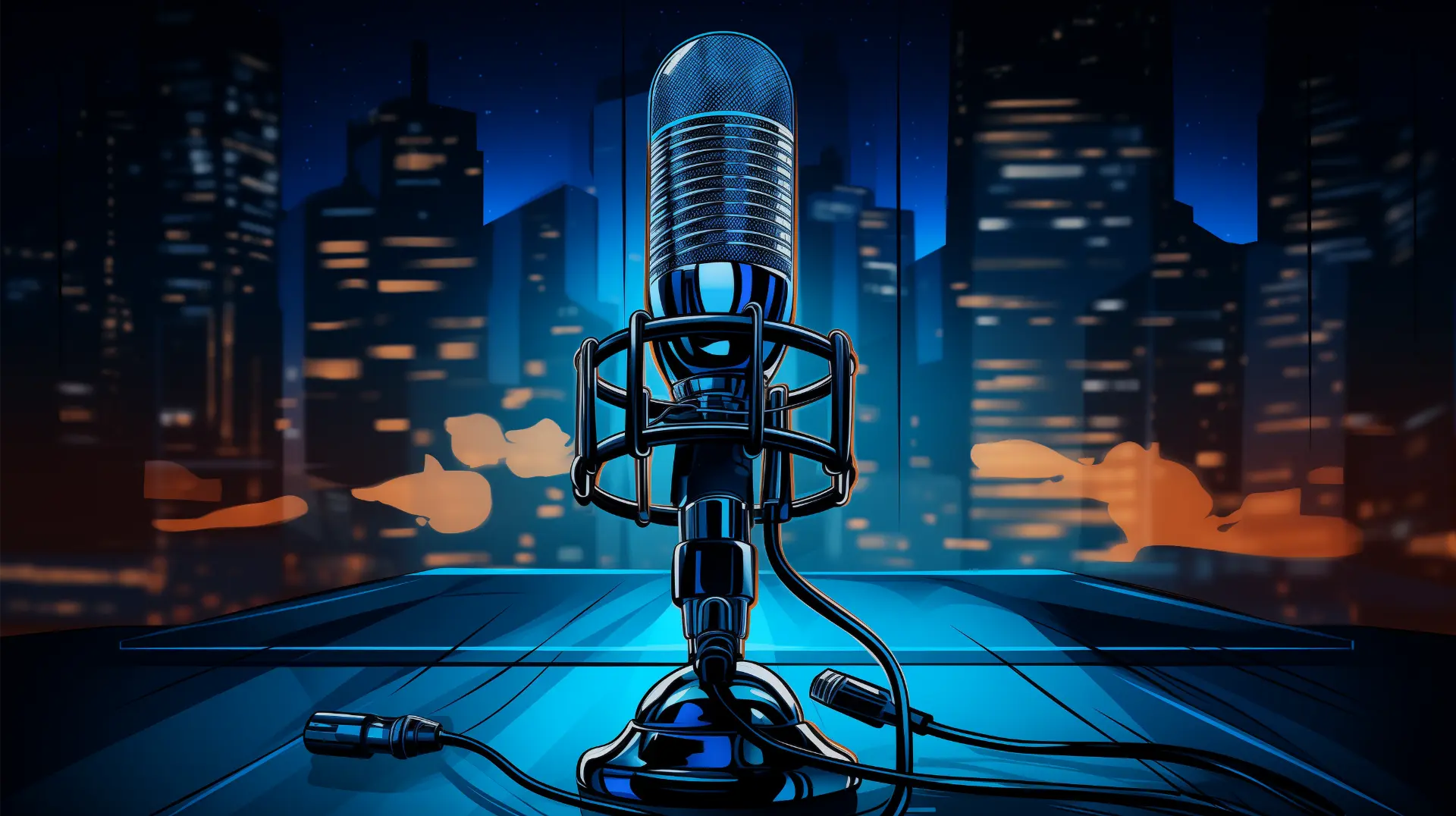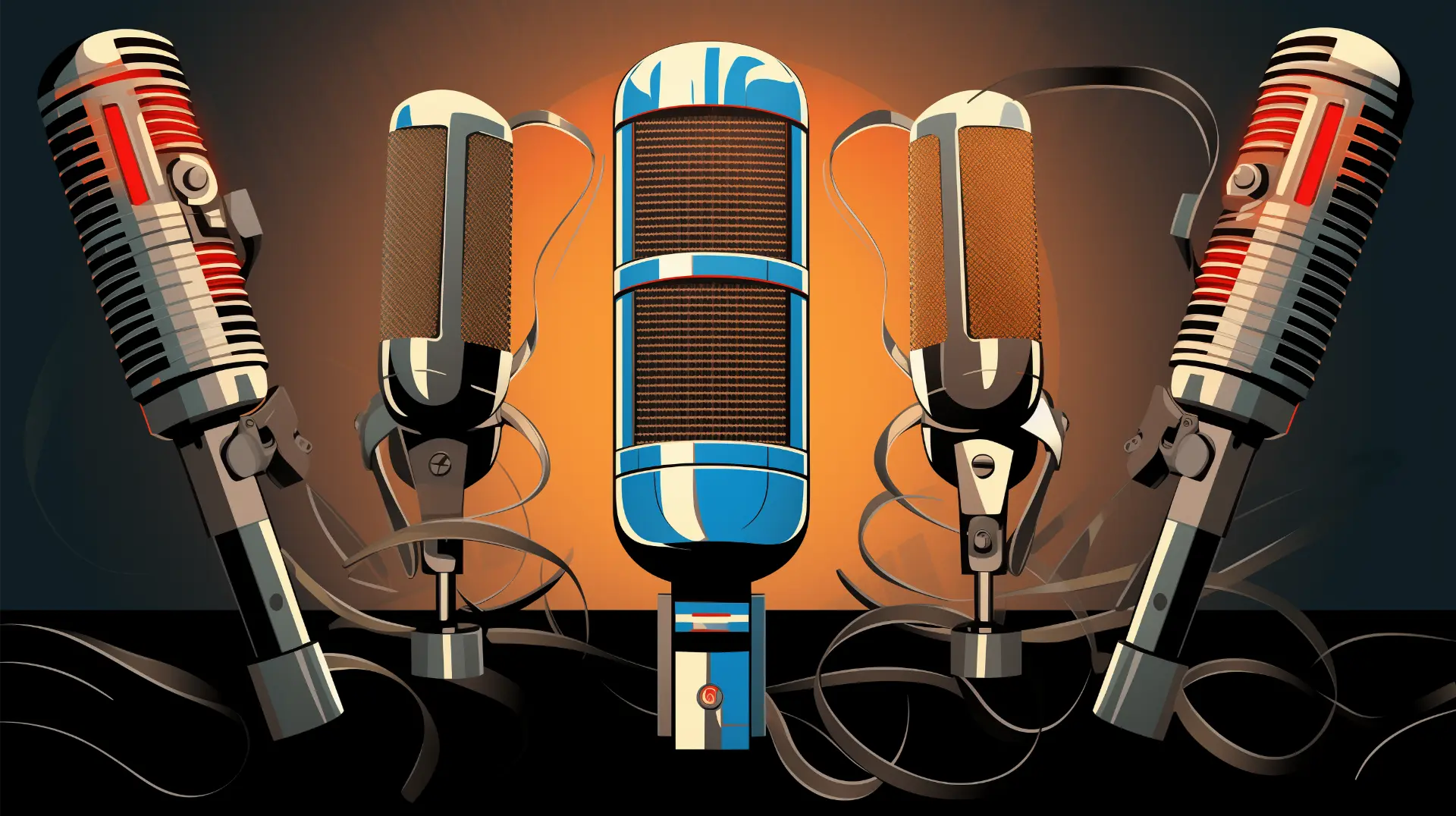In the vast realm of audio equipment, dynamic microphones hold a special place. Famed for their robustness, versatility, and ability to deliver clear audio even in challenging environments, these microphones have become a staple in live sound settings and studios alike. From the iconic stages of legendary concerts to intimate podcasting studios, dynamic mics have been the silent heroes, ensuring every word, note, and nuance is captured with clarity.
Unlike their condenser counterparts, dynamic microphones operate without requiring external power. This is thanks to their simple design, where sound waves hit a diaphragm/voice coil assembly, moving within a magnetic field and producing an electrical current. The result? A mic that’s not only durable but also less sensitive to moisture and high sound pressure levels, making them ideal for handling loud sound sources like guitar amplifiers and snare drums.
As the demand for high-quality audio continues to rise in various fields, from broadcasting to music production, the importance of choosing the right microphone cannot be overstated. In this guide, we dive deep into the world of dynamic microphones, exploring the top contenders in the market, and shedding light on what makes them stand out. Whether you’re a budding musician, a seasoned broadcaster, or someone looking to enhance their audio setup, there’s a dynamic microphone out there that’s tailored to your needs. Join us as we journey through the best dynamic microphones available today.
- Shure SM57 - SM58
- Sennheiser MD421 II
- Shure SM7B
- Electro-Voice RE20
- Telefunken M80
- Audio-Technica ATR2100
- Sennheiser e835-S
- AKG D12 VR
- sE Electronics V7
- Sennheiser e 609 Silver
- Audio-Technica ATM230PK
- Shure MV7
- sE Electronics Dynacaster
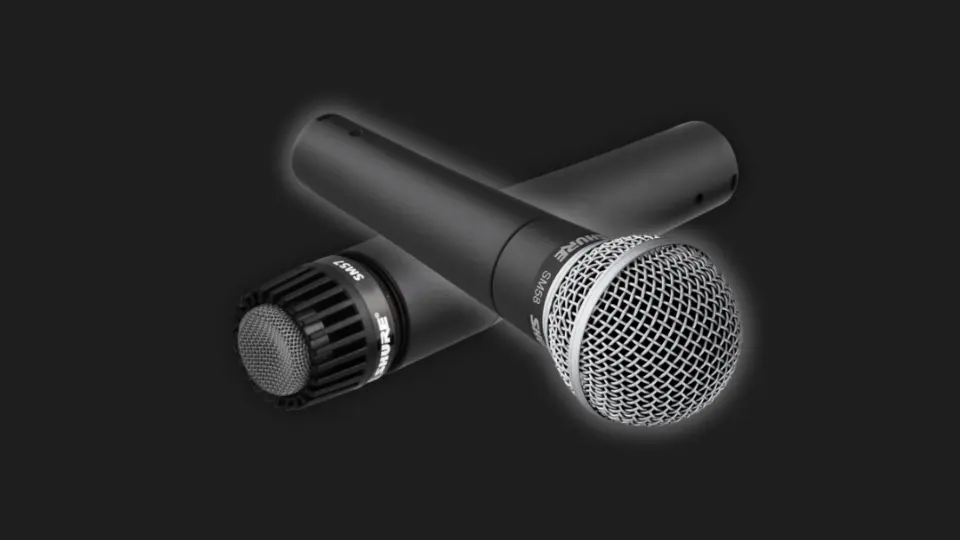
Shure SM57 - SM58
Timeless Icons of the Dynamic Microphone World
Specifications:
- Polar Pattern: Cardioid
- Frequency Response: SM57 (40 Hz - 15 kHz)
- Frequency Response: SM58 (50 Hz - 15 kHz)
- Application: The SM57 is more ideal for musical instrument pickup and vocals, suitable for both live sound reinforcement and recording.
- Application: The SM58 is primarily designed for professional vocal use in live performance, sound reinforcement, and studio recording, with a built-in spherical filter to minimize wind and breath “pop” noise.
- Connectivity: XLR
Benefits:
- Renowned for their durability and ability to withstand rough handling.
- Tailored frequency response ideal for both vocals (SM58) and instruments (SM57).
- Cardioid pickup pattern isolates the main sound source while minimizing background noise.
- A consistent choice among professionals for both live sound and studio recording.
- Proven track record with decades of reliable performance.
Overview:
The Shure SM57 and SM58 are, without a doubt, two of the most recognized and widely used microphones in the world of audio. These dynamic microphones have stood the test of time, offering unmatched reliability and performance for decades.
The SM57 is best known for its instrument-miking prowess. Its tailored frequency response captures the warmth and clarity of instruments, making it a favorite for miking guitar amplifiers, drums, and wind instruments. Its presence peak helps instruments stand out in the mix, ensuring they are heard clearly, irrespective of the environment.
On the other hand, the SM58 has earned its reputation as the quintessential vocal microphone. Whether on the stage of a rock concert or in the quiet setting of a broadcast studio, the SM58 delivers clear and warm vocal reproduction. Its built-in spherical filter effectively reduces wind and breath noises, ensuring a clean output.
Final Thoughts:
The legacy of the Shure SM57 and SM58 speaks volumes about their quality and performance. They’re not just microphones; they represent a gold standard in the world of dynamic mics. While the SM57 shines with instruments, the SM58 stands out for vocals. It’s also worth noting the versatility of both, as the SM57 can be used for vocals and the SM58 for instruments when needed. Additionally, for those considering a more budget-friendly version with many of the signature qualities, the Shure SM16 might be worth a look. However, for those aiming to have the tried-and-true icons in their audio arsenal, the SM57 and SM58 are indispensable choices.
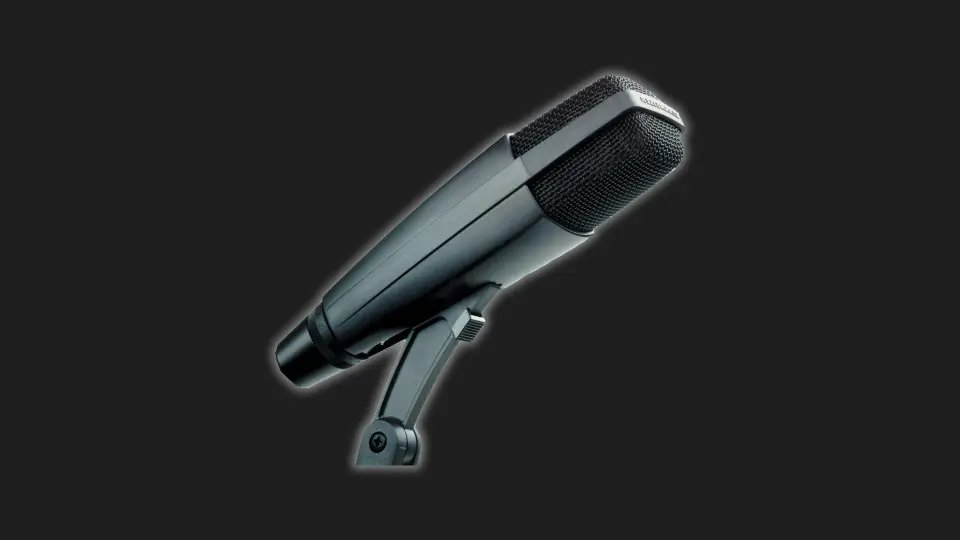
Sennheiser MD421 II
A Versatile Workhorse in Studio and Live Environments
Specifications:
- Polar Pattern: Cardioid
- Frequency Response: 30 Hz - 17 kHz
- Application: An excellent choice for a variety of applications including recording instruments, group vocals, or broadcasting. It's particularly noted for its ability to handle high sound pressure levels, which makes it a go-to choice for miking loud instruments in both studio and live sound settings.
- Connectivity: XLR
Benefits:
- Highly versatile and suitable for a wide range of applications including vocals, guitar cabinets, and drums.
- Five-position bass roll-off switch to tailor the microphone's frequency response to specific needs.
- Durable design that stands up to the rigors of daily studio or live use.
- Clear and rich sound reproduction across a wide frequency range.
- Recognized and respected for its consistency and performance in various settings.
Overview:
The Sennheiser MD421 II is often celebrated for its adaptability. A dynamic microphone with a legacy spanning several decades, it’s trusted by many professionals for its consistency and broad applicability. The MD421 II is famed for delivering clear mids, full-bodied lows, and crisply defined highs, making it an excellent choice for both studio and live settings.
Its most distinctive feature is the five-position bass roll-off switch, allowing users to adjust the microphone’s low-end response according to the application. This makes the MD421 II particularly adaptable, whether you’re recording the deep resonance of a kick drum or the clear articulation of a vocalist.
Another remarkable attribute of the MD421 II is its durability. Its robust construction ensures that it can withstand the demands of touring, frequent handling, and long studio sessions without compromising on performance.
Final Thoughts:
The Sennheiser MD421 II stands out as a dynamic microphone that doesn’t box itself into a single niche. From vocals to a diverse range of instruments, its adaptability is its strength. The bass roll-off feature further underscores its versatility, allowing for precise tailoring of its sound to meet specific needs. Whether you’re outfitting a studio or seeking a reliable mic for live shows, the MD421 II is a valuable addition that promises consistent performance and unmatched flexibility.
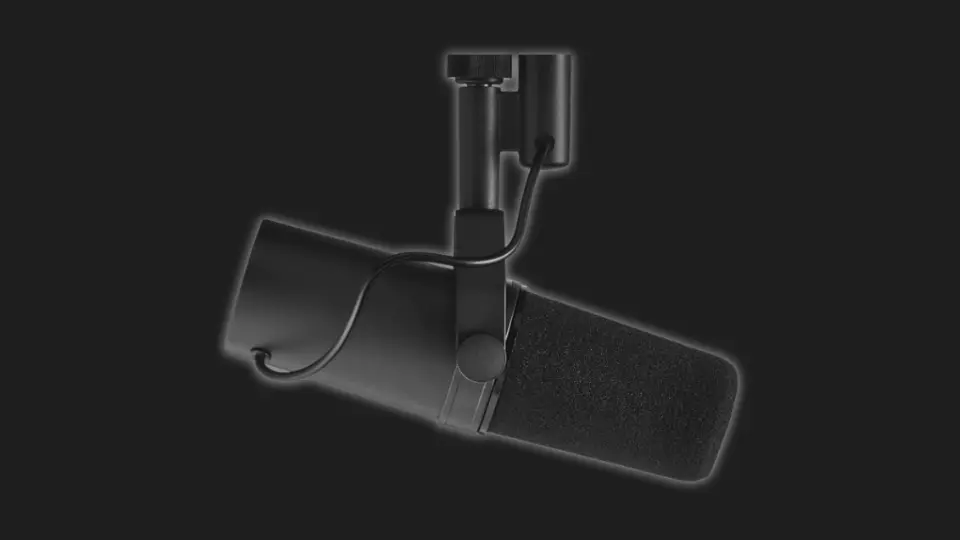
Shure SM7B
A Studio Favorite for Vocals and Broadcast
Specifications:
- Polar Pattern: Cardioid
- Frequency Response: 50 Hz - 20 kHz
- Application: Instrumental and vocal recording.
- Application: Lead vocal microphone, and miking guitar amps, bass amps, kick drums, hi-hat, snare drums, and horns.
- Application: Broadcasting and Production.
- Application: Live Performance.
- Connectivity: XLR
Benefits:
- Renowned for its smooth, flat, wide-range frequency response appropriate for both music and speech.
- A popular choice among podcasters, radio hosts, and recording artists.
- Air suspension shock isolation system effectively eliminates mechanical noise transmission.
- Built-in pop filter reduces plosive breath sounds.
- Can handle high sound pressure levels (SPL) without distortion.
Overview:
The Shure SM7B has long been recognized as a staple in the recording world, especially when it comes to capturing vocals. Its reputation extends beyond the music studio, however, as it’s also a favored choice among podcasters and broadcasters. The microphone’s ability to deliver a natural, clear, and articulate sound makes it ideal for various vocal applications.
One of the standout features of the SM7B is its wide-range frequency response, which provides consistently clear and detailed capture across the spectrum. Additionally, its air suspension shock isolation system ensures that mechanical noises from mic stands or booms don’t interfere with the recording.
Plosive sounds, which can be an issue especially in spoken word recordings, are effectively minimized with the microphone’s built-in pop filter. This makes the SM7B an excellent choice for close-mic applications where clarity and detail are paramount.
Final Thoughts:
The Shure SM7B is a testament to what a well-engineered dynamic microphone can achieve. From capturing intimate vocal performances in the studio to being the go-to microphone for podcasters and radio hosts, its versatility is undeniable. Its design considerations, from shock isolation to integrated pop filtering, highlight Shure’s attention to detail and commitment to quality. For anyone seeking a reliable, high-performing dynamic mic for vocals, the SM7B should be at the top of the list.
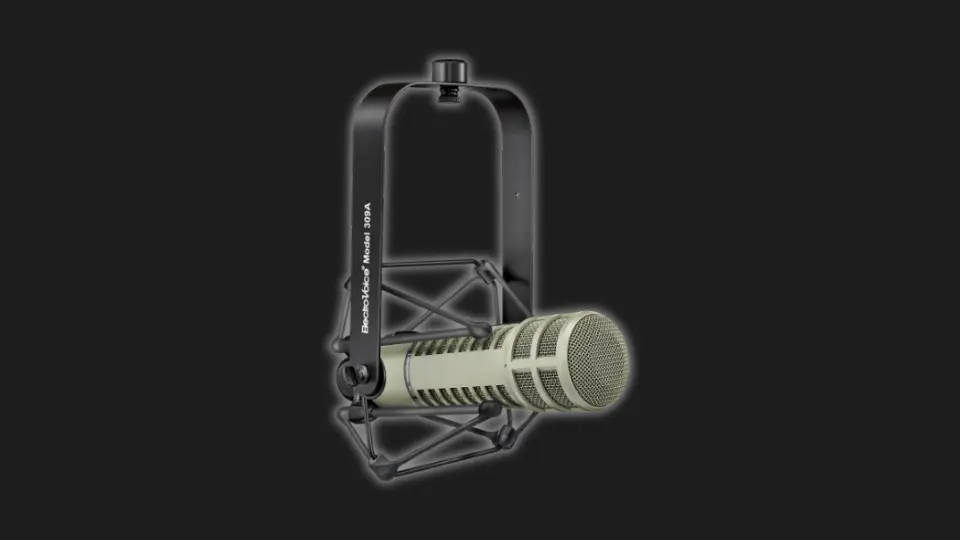
Electro-Voice RE20
The Gold Standard for Broadcast and Voiceovers
Specifications:
- Polar Pattern: Cardioid
- Frequency Response: 45 Hz - 18 kHz
- Application: The microphone is an industry favorite for broadcasting and podcasting.
- Application: Recording and Sound Engineering
- Application: It has been highlighted for its application on kick drums.
- Application: Useful for close-in voice work.
- Connectivity: XLR
Benefits:
- Renowned for its ability to capture voice with clarity and richness.
- Variable-D design reduces proximity effect, ensuring consistent tone.
- Durable build suited for professional environments.
- Internal element shock-mount reduces vibration-induced noise.
- Often considered the benchmark for radio and broadcast microphones.
Overview:
The Electro-Voice RE20 is often hailed as one of the best microphones for capturing voice, be it in radio, podcasting, or voiceover work. Its reputation stems from its unparalleled ability to reproduce voice with a combination of warmth, clarity, and presence.
The Variable-D design of the RE20 is particularly noteworthy. This technology minimizes the proximity effect, a common concern with many microphones where the bass response increases as the sound source gets closer to the mic. This ensures that the tonal quality remains consistent, regardless of the distance between the speaker and the microphone.
Beyond its sound quality, the RE20 is built to last. Its rugged construction ensures that it can withstand the rigors of daily professional use. Moreover, its internal element shock-mount effectively mitigates any vibration or handling noise, making sure that only the intended sound is captured.
Final Thoughts:
The Electro-Voice RE20 stands as a testament to excellence in voice recording. Its consistent performance, durability, and attention to detail in design have made it a favorite in the broadcasting world for decades. For those who prioritize vocal clarity and depth, whether in a radio booth or a recording studio, the RE20 remains an outstanding choice. Its enduring popularity speaks volumes about its quality and reliability.
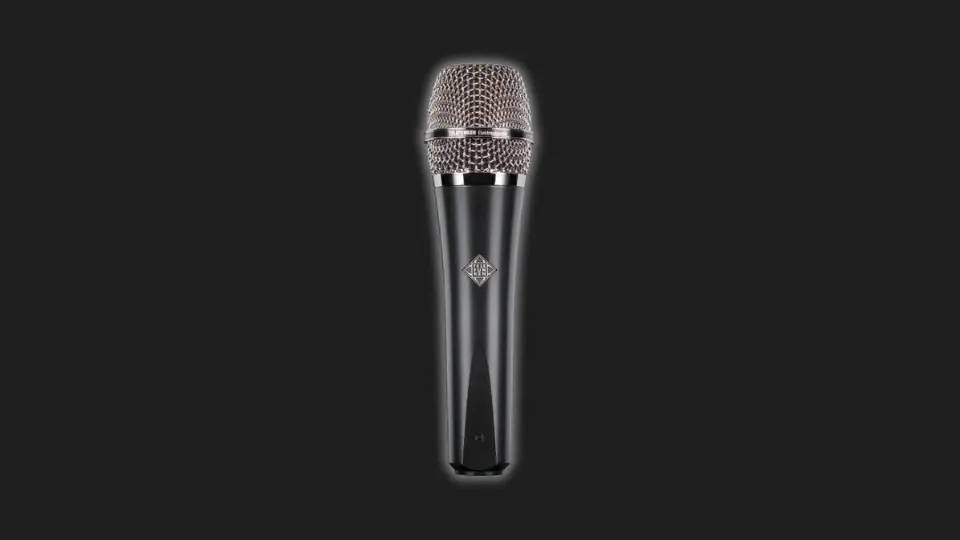
Telefunken M80
A Fresh Perspective on Dynamic Vocal Mics
Specifications:
- Polar Pattern: Supercardioid
- Frequency Response: 50 Hz - 18 kHz
- Application: The Telefunken M80 is highlighted for its robust build quality and its ability to deliver a bright, open sound, making it a favorite for lead vocals, instruments, and particularly effective in live gig settings as well as studio recordings.
- Connectivity: XLR
Benefits:
- Delivers a wide frequency response with a subtle lift in the upper mids for clarity.
- Supercardioid pattern offers superior isolation and feedback rejection.
- Sleek and stylish design with various color options.
- Sturdy build quality ensures longevity and resilience.
- Ideal for both live vocals and instruments due to its versatility.
Overview:
The Telefunken M80 is not just another dynamic vocal microphone; it’s a modern take on a classic design, offering a distinct tonal balance and unmatched versatility. The mic is designed to deliver a sound that’s both open and detailed, a slight departure from many traditional dynamic mics that can sometimes sound muffled or overly bass-heavy.
One of the standout features of the M80 is its wide frequency response, which captures the nuances of a performance while providing a subtle lift in the upper mids. This ensures vocals cut through the mix with clarity and presence. Furthermore, the supercardioid polar pattern provides excellent off-axis rejection, making the M80 ideal for live settings where bleed and feedback can be issues.
Apart from its sonic capabilities, the M80 is a work of art in terms of aesthetics. It boasts a sleek design available in various colors, allowing artists to choose one that matches their style. Moreover, the mic’s rugged build promises durability, ensuring it can handle the demands of touring and frequent stage use.
Final Thoughts:
The Telefunken M80 bridges the gap between traditional and contemporary dynamic microphones. It delivers a sound that’s both familiar and refreshingly new, making it suitable for a wide range of applications, from live vocals to studio recordings. For those looking for a dynamic mic that offers both style and substance, the M80 is a worthy contender. Its combination of sonic excellence and visual appeal makes it a standout choice in a crowded market.
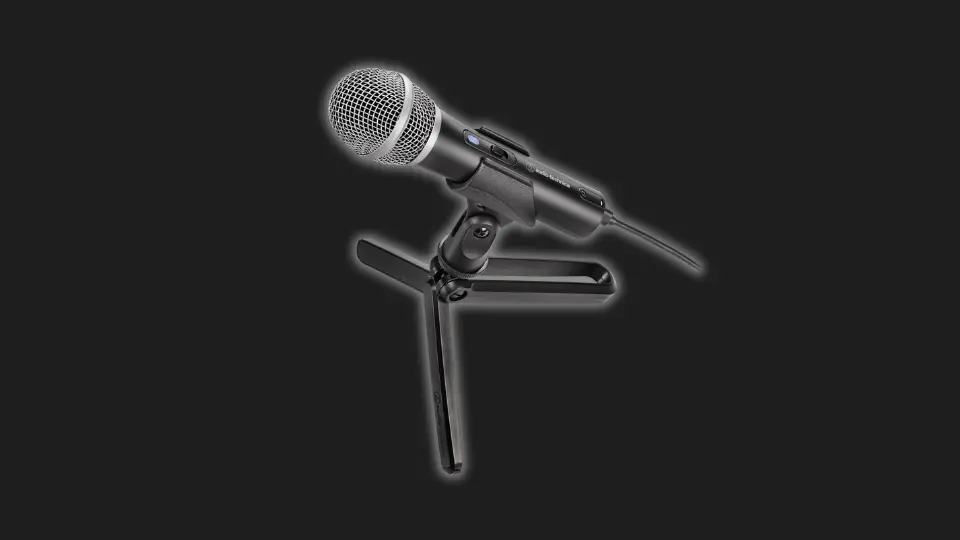
Audio-Technica ATR2100
The Perfect Bridge Between Affordability and Professional Sound
Specifications:
- Polar Pattern: Cardioid
- Frequency Response: 50 Hz - 15 kHz
- Application: The Audio-Technica ATR2100 microphone's range of applications from podcasting and live performances to digital recording and content creation demonstrates its flexibility and appeal to a broad spectrum of audio enthusiasts and professionals.
- Connectivity: XLR and USB
Benefits:
- Dual XLR and USB connectivity cater to a wide range of recording setups.
- Cardioid pattern helps in minimizing background noise and isolating the main sound source.
- Solid construction despite its budget-friendly price tag.
- Convenient on/off switch for easy operation.
- Offers a clear and detailed sound profile suitable for both voice and instruments.
Overview:
The Audio-Technica ATR2100 stands out as a dynamic microphone that offers great value without compromising on sound quality. Its dual connectivity options make it especially appealing for those who need flexibility in their recording setup, catering to both analog and digital requirements.
Sound-wise, the ATR2100 is quite impressive for its price range. It captures clear and crisp audio, thanks to its cardioid polar pattern, which does an excellent job of reducing background noise and focusing on the primary sound source. Whether you’re podcasting, doing voiceovers, or recording musical instruments, this mic offers a balanced and detailed sound profile.
The build quality, too, is commendable. It feels sturdy and is constructed to endure the rigors of everyday use. Moreover, the on/off switch on the mic’s body is a handy addition, especially for live sound situations or podcasting, allowing for easy muting without having to fiddle with software settings.
Final Thoughts:
For those on a budget but unwilling to compromise on sound quality, the Audio-Technica ATR2100 is a fantastic choice. Its dual connectivity options ensure it’s versatile enough to fit into any recording setup, and its sound performance is on par with some higher-priced microphones. Whether you’re just starting out in the world of recording or looking for an affordable backup mic, the ATR2100 deserves serious consideration.
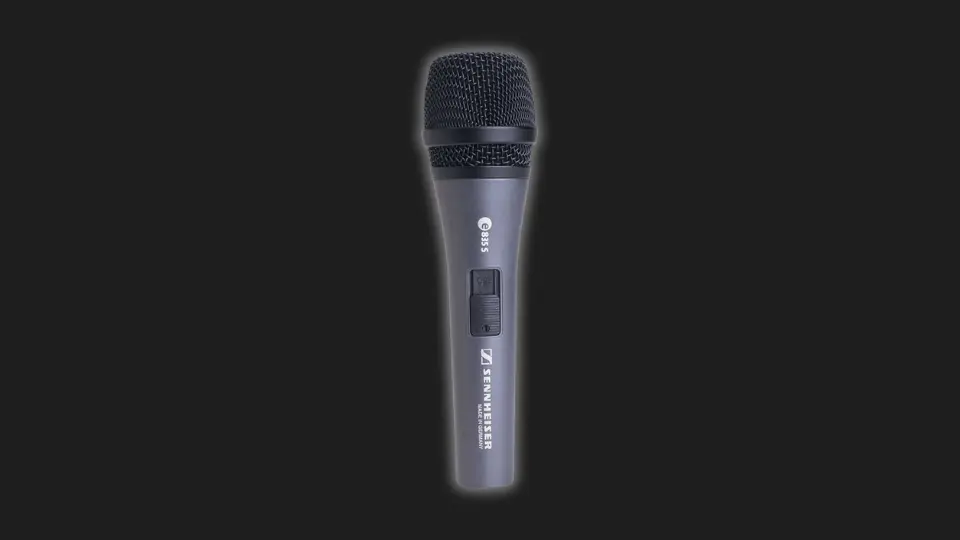
Sennheiser e835-S
Reliable Performance with a Touch of Versatility
Specifications:
- Polar Pattern: Cardioid
- Frequency Response: 40 Hz - 16 kHz
- Application: A versatile choice for live performances, home and studio recordings, as well as instrumental capture.
- Connectivity: XLR
Benefits:
- Robust and metal construction ensures longevity and durability.
- Cardioid pattern offers effective feedback rejection and isolates the primary sound source.
- Produces a warm, clear, and consistent sound quality.
- Integrated silent on/off switch provides convenient muting.
- High output with minimal noise makes it great for vocals and onstage performances.
Overview:
The Sennheiser e835-S stands as a testament to Sennheiser’s reputation for producing high-quality audio gear. As a dynamic microphone tailored for vocals, it offers both the robustness and sound clarity that performers and sound engineers have come to appreciate.
One of the notable features of the e835-S is its cardioid polar pattern. This ensures that the microphone captures the main sound source while efficiently reducing background noises and feedback, especially during live performances. Its frequency response is tailored to bring out the best in vocals, producing a sound that’s both clear and warm.
The e835-S also boasts a sturdy metal construction, reflecting its readiness for the challenges of regular use, whether it’s in a studio or on stage. The integrated silent on/off switch is an added advantage, allowing performers to have control over their sound without any unwanted noise interruptions.
Final Thoughts:
The Sennheiser e835-S is a solid choice for those seeking a reliable dynamic microphone for vocals. Its sound profile, combined with its robust build, ensures that it can handle both studio recordings and live performances with ease. The added functionality of the silent switch makes it all the more versatile. For professionals and enthusiasts alike, the e835-S is a worthy addition to any audio setup.
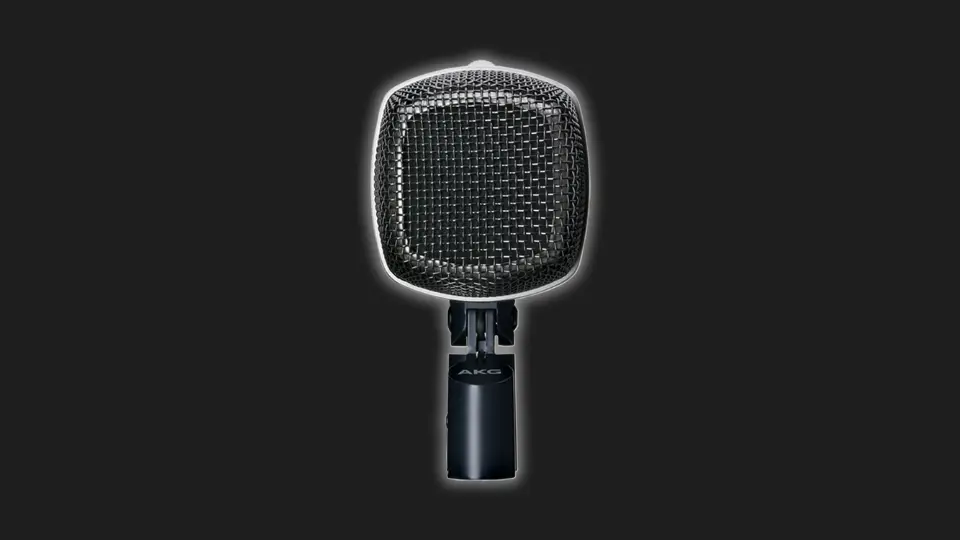
AKG D12 VR
Vintage Resurgence with Modern Enhancements
Specifications:
- Polar Pattern: Cardioid
- Frequency Response: 17 Hz - 17 kHz
- Application: The AKG D12 VR is recognized for its specialty in handling kick drum recording with its design and features oriented towards delivering a quality low-frequency performance, which can also be beneficial in a broader range of recording applications.
- Connectivity: XLR
Benefits:
- Vintage voice paired with contemporary design for a rich and punchy sound.
- Three switchable active-filter presets for kick drum sound shaping.
- Ultra-thin diaphragm ensures accurate sound reproduction.
- Optimized bass chamber for enhanced low-frequency performance.
- Robust design ensures longevity, especially in demanding studio conditions.
Overview:
The AKG D12 VR is a dynamic microphone that merges the iconic character of its vintage predecessor with modern-day enhancements. Revered primarily for kick drum recording, the D12 VR captures low-end frequencies with precision and clarity, making it a sought-after microphone in many studios around the globe.
The microphone’s cardioid polar pattern ensures focused sound capture, minimizing off-axis sounds and delivering a punchy, clear audio output. One of the standout features of the D12 VR is its three active-filter presets, which can be engaged even without phantom power. These filters provide sound engineers with additional tonal flexibility, allowing them to sculpt the kick drum sound to suit different musical genres.
The ultra-thin diaphragm of the microphone captures sound with a high degree of accuracy, ensuring that even the subtle nuances of recordings are faithfully reproduced. Moreover, the optimized bass chamber augments the low-frequency performance, further accentuating the kick drum’s punch.
Final Thoughts:
The AKG D12 VR stands as a testament to AKG’s commitment to delivering quality sound reproduction. By combining the best aspects of vintage design with modern technology, this microphone is set to satisfy both purists and contemporary sound engineers. Whether you’re tracking drums in a high-end studio or trying to capture the perfect kick sound in a home setup, the D12 VR should be high on your list of considerations. Its unmatched performance in low-frequency recording makes it an invaluable asset in any professional audio arsenal.
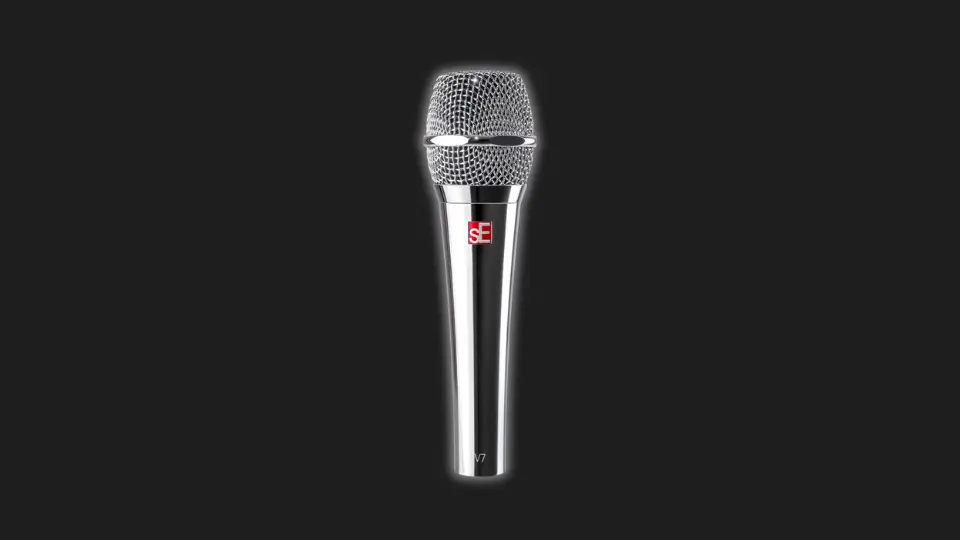
sE Electronics V7
Rugged Design Meets Pristine Sound Reproduction
Specifications:
- Polar Pattern: Supercardioid
- Frequency Response: 40 Hz - 19 kHz
- Application: A well-regarded choice for live performances, and a valued addition for capturing both voice and instruments in various settings.
- Connectivity: XLR
Benefits:
- Specialized aluminum voice coil offers a crisp, open sound.
- Supercardioid pattern ensures maximum isolation and feedback rejection.
- Durable zinc alloy body with a high-quality, stainless steel mesh grille.
- Integrated shock mount eliminates handling noise.
- Effective internal windscreen minimizes wind noise and plosive sounds.
Overview:
A dynamic powerhouse, the sE Electronics V7 is known for its remarkable sound clarity and durability. Tailored for vocalists and designed to withstand the rigors of touring, this microphone is both an engineer’s and a performer’s dream.
The V7 is equipped with a specialized aluminum voice coil that ensures a crisp, open sound, making vocals stand out in a mix. The supercardioid polar pattern ensures maximum sound source isolation, making it ideal for live performances where feedback rejection is crucial. This pattern also ensures that the sound captured is a true representation of the source, with minimal coloration.
Built to last, the V7 boasts a robust zinc alloy body that can handle the bumps and drops of regular use. The high-quality stainless steel mesh grille not only adds to the microphone’s durability but also effectively protects the inner components from moisture and other potential hazards. With its integrated shock mount, handling noise is practically non-existent, allowing for cleaner recordings even in challenging environments.
An effective internal windscreen further refines the V7’s design, effectively reducing unwanted wind noises and plosive sounds, ensuring that vocal recordings are clear and free from distractions.
Final Thoughts:
For vocalists seeking a dynamic microphone that can deliver on all fronts – sound quality, durability, and feedback rejection – the sE Electronics V7 is a top contender. With its blend of advanced technology and rugged design, it’s no wonder that the V7 has quickly become a favorite among professionals on stage and in the studio. Whether you’re laying down tracks or performing live, the V7 promises consistency and reliability every step of the way.
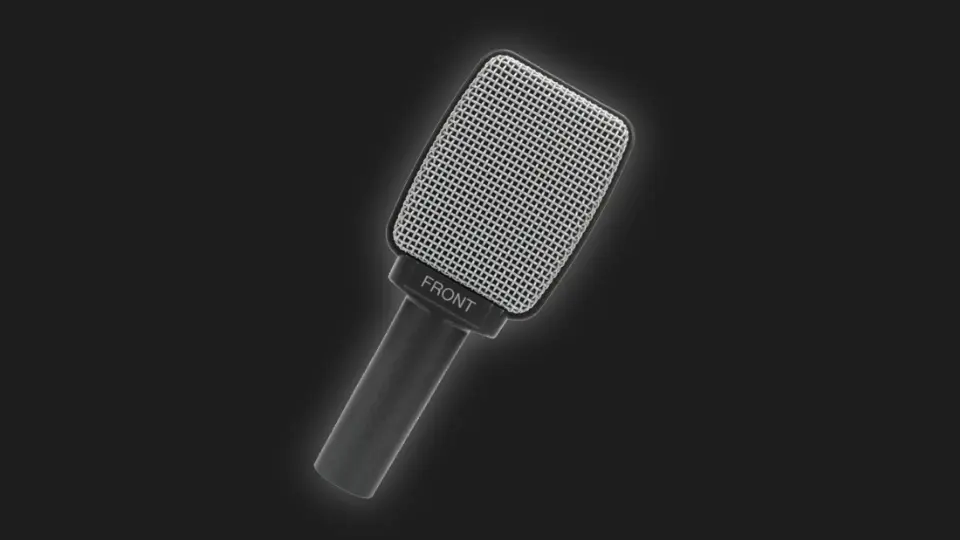
Sennheiser e 609 Silver
Precision and Clarity for Guitar Amps and More
Specifications:
- Polar Pattern: Supercardioid
- Frequency Response: 40 Hz - 15 kHz
- Application: A favored choice for capturing guitar cabinets, drums, and brass instruments in a variety of settings, demonstrating its versatility and utility in both live performance and recording applications.
- Connectivity: XLR
Benefits:
- Specifically designed for miking guitar amps face-on and extremely close to the signal source.
- Supercardioid polar pattern focuses on the main sound source and reduces background noise.
- Laterally mounted capsule for guitars that can be hung over the amps.
- Versatile and suitable for other instruments like snare, tom-tom, and other drums.
- Flat profile allows for easy placement without the need for any stands.
Overview:
The Sennheiser e 609 Silver, with its distinctive look and specialized design, has carved a niche for itself among guitarists and engineers alike. Tailored for capturing roaring guitar amps, this microphone is equipped to handle high SPLs without sacrificing clarity.
Thanks to its supercardioid polar pattern, the e 609 Silver focuses sharply on the sound it’s aimed at, making it particularly effective in live settings where background noise and feedback are challenges. The mic’s design allows it to be positioned in front of the amp without the need for mic stands, which is particularly handy in tight spaces or cluttered stages.
Beyond guitar amps, the e 609 Silver demonstrates versatility. Its ability to capture the sharp attack of percussion instruments like snares and toms makes it a valuable addition to a drummer’s microphone arsenal. This adaptability combined with its robust build quality ensures the e 609 Silver has a place in multiple recording and live scenarios.
Final Thoughts:
For those who want a reliable and efficient way to mic up guitar amps, the Sennheiser e 609 Silver stands out as a preferred choice. Its flat profile, combined with the unique capability to hang directly in front of an amp, sets it apart from many other mics in its class. Add to that its adaptability for other instruments, and you have a mic that’s not just versatile, but indispensable in many setups. Whether you’re in the studio or performing live, the e 609 Silver promises to deliver sound with precision and clarity.
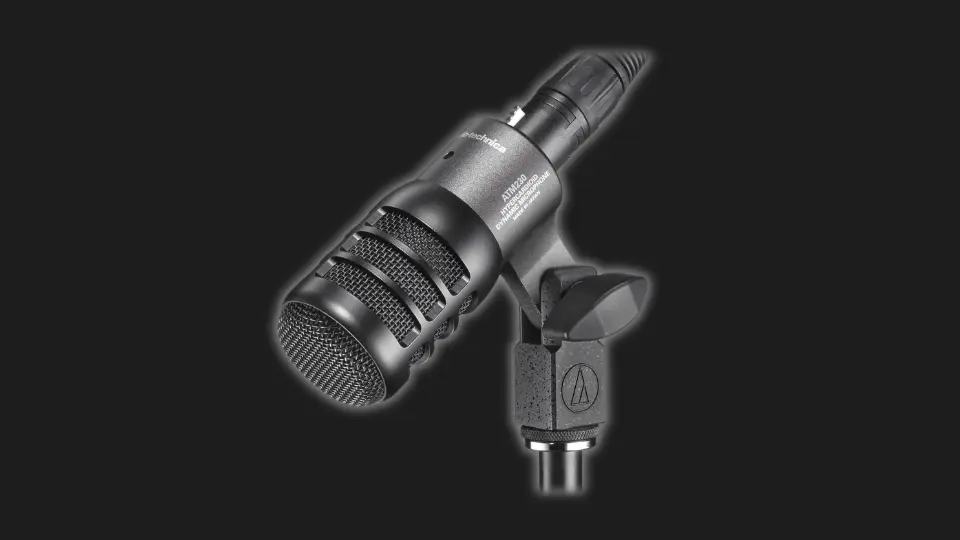
Audio-Technica ATM230PK
Exceptional Drum Miking with Compact Design
Specifications:
- Polar Pattern: Hypercardioid
- Frequency Response: 30 Hz - 12 kHz
- Application: Miking percussion instruments like rack and floor toms, snare drums, and other percussion instruments.
- Connectivity: XLR
Benefits:
- Tailored frequency response perfect for miking toms, snares, and other percussion instruments.
- Compact design facilitates easy positioning in drum setups.
- Hypercardioid polar pattern ensures focused sound capture, minimizing bleed from other drums.
- Comes in a pack, making it suitable for drum kit miking.
- Built with high SPL handling, allowing it to capture loud sources without distortion.
Overview:
The Audio-Technica ATM230PK, designed primarily for drum miking, stands out with its compact design and hyper-focused sound capture. Part of Audio-Technica’s Artist Series, this microphone showcases the brand’s dedication to delivering top-notch sound quality for specific applications, and in this case, it’s the realm of percussion.
A key feature of the ATM230PK is its hypercardioid polar pattern, which is crucial when it comes to drum miking. This pattern ensures that each microphone captures the sound directly in front of it while rejecting sounds from the sides and rear. This makes it adept at minimizing bleed from neighboring drums, ensuring each hit’s purity and clarity.
The compact design of the microphone is also beneficial for drummers and sound engineers. It allows for easy placement around a drum kit, even in tight spaces or setups where larger mics could be obtrusive. Given that drums can produce significant sound pressure levels, the ATM230PK’s ability to handle high SPLs ensures that loud hits are captured with clarity and without distortion.
Final Thoughts:
The Audio-Technica ATM230PK is more than just a single microphone—it’s a comprehensive solution for drum miking. With the capability to handle the nuances and power of different percussion instruments, it becomes a valuable addition to both studio and live setups. If you’re looking for a mic pack that will not only capture the heart of your drumming but also provide a hassle-free miking experience, the ATM230PK is worth considering. The added bonus of multiple mics in one pack ensures that you have a consistent sound across your drum kit. Whether you’re an engineer or a drummer, the ATM230PK offers reliability, quality, and precision in capturing the rhythmic essence of a performance.
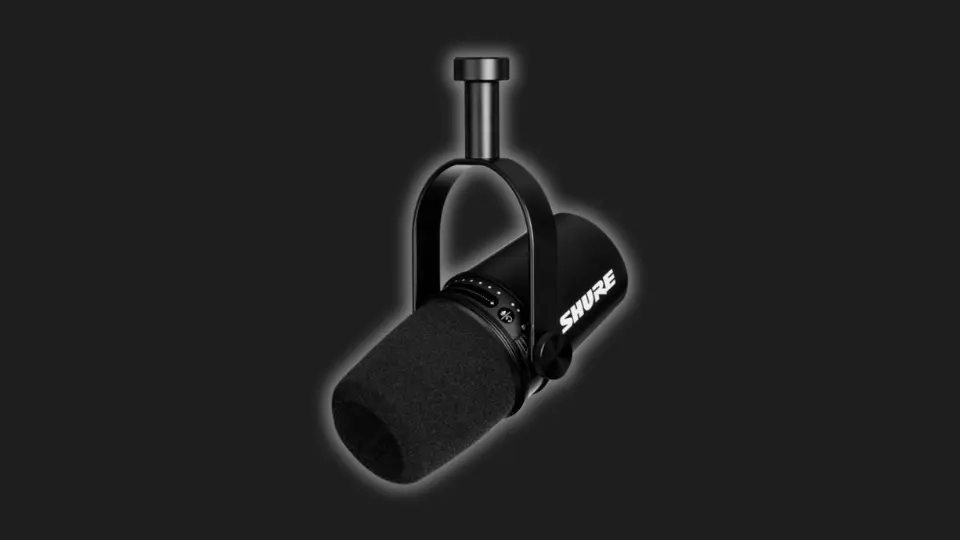
Shure MV7
A Modern Twist on the Classic Dynamic Microphone
Specifications:
- Polar Pattern: Cardioid
- Frequency Response: 50 Hz - 16 kHz
- Application: a versatile choice for a variety of audio applications ranging from podcasting and streaming to home studio recording and video conferencing.
- Connectivity: XLR and USB
Benefits:
- Hybrid connectivity with both XLR and USB outputs.
- Touch panel controls for real-time adjustments.
- Inspired by the iconic Shure SM7B, delivering a familiar sound profile.
- Automatic level setting with the ShurePlus MOTIV app for easy recording.
- Built-in headphone jack for direct monitoring.
Overview:
The Shure MV7 is a fresh take on the classic dynamic microphone design, tailored to fit both the needs of professional podcasters and musicians. Drawing inspiration from the legendary SM7B, the MV7 offers a versatile solution by providing both USB and XLR outputs, bridging the gap between traditional audio equipment and the digital realm.
One of the standout features of the MV7 is its touch panel controls, which allow for quick and easy adjustments to headphone volume, mic gain, and monitor mix. This on-the-fly customization proves invaluable, especially in live broadcasting scenarios or podcast recordings where real-time adjustments are essential.
The MV7’s sound profile stays true to its roots, with a rich and clear output that is reminiscent of the SM7B. However, the integration with the ShurePlus MOTIV app takes things a step further by offering automatic level setting, ensuring optimized audio quality even for those new to recording.
The built-in headphone jack for direct monitoring is another nod to its modern features, allowing for real-time feedback during recordings. This feature, combined with its robust build and sleek design, makes the MV7 a worthy choice for content creators who demand the best of both analog and digital worlds.
Final Thoughts:
The Shure MV7 signifies the evolution of dynamic microphones, bringing classic sound quality to the modern age. With its dual connectivity, touch panel controls, and integration with the MOTIV app, it offers a seamless recording experience for both beginners and professionals. Whether you’re delving into podcasting, streaming, or musical recordings, the MV7 stands as a testament to Shure’s commitment to maintaining quality while embracing innovation. If you’re on the lookout for a mic that offers the best of both worlds, the MV7 should undoubtedly be on your radar.
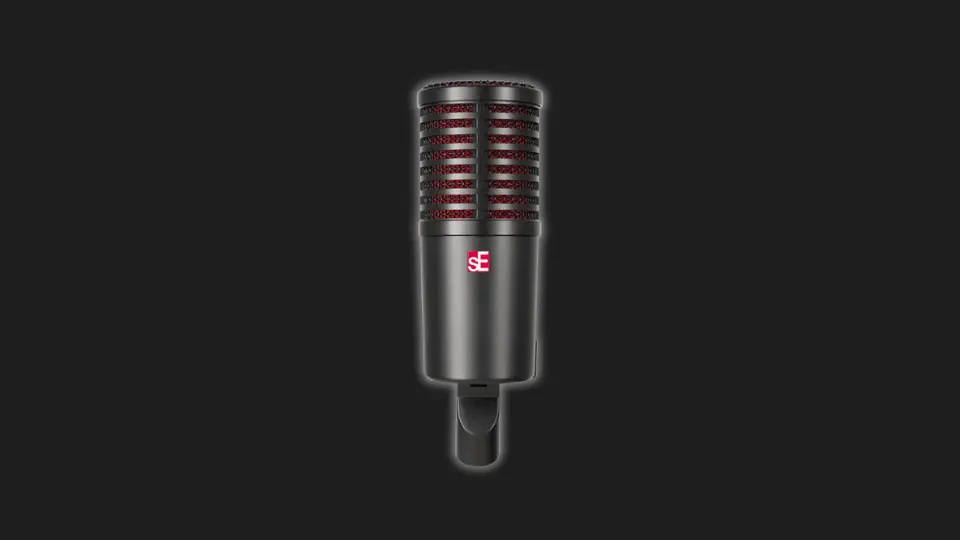
sE Electronics Dynacaster
A Fresh Approach to Dynamic Microphone Design
Specifications:
- Polar Pattern: Cardioid
- Frequency Response: 20Hz-19kHz
- Application: A broad spectrum of audio applications, ranging from broadcasting, podcasting, and content creation, to voiceover work, gaming, streaming, and music production.
- Connectivity: XLR
Benefits:
- Robust design suitable for both studio and stage applications.
- Cardioid polar pattern ensures focused sound capture, minimizing unwanted background noise.
- High SPL handling capability for capturing loud sources without distortion.
- Custom-wound voice coil for enhanced clarity and detail.
Overview:
sE Electronics introduces the Dynacaster, a dynamic microphone that’s designed to cater to both studio recording and live performance scenarios. At its core, the Dynacaster combines the ruggedness required for stage applications with the nuanced sound quality expected in studio environments.
Its cardioid polar pattern ensures that sound sources are captured with precision, effectively reducing ambient noise or feedback that might be present, especially in live settings. This makes the Dynacaster versatile, suitable for vocals, instruments, and even louder sources like guitar amplifiers.
The highlight of this microphone lies in its custom-wound voice coil, which has been meticulously designed to bring out the details in sound sources. This attention to detail ensures that vocals are clear and articulate, and instruments are captured with richness and depth.
High SPL handling is another feature that stands out, making it possible for the Dynacaster to record loud sources without any hint of distortion. Whether you’re recording powerful vocals, drum kits, or blaring guitar amps, this microphone is up to the task.
Final Thoughts:
The sE Electronics Dynacaster offers a blend of durability and sound quality, making it a worthy contender in the realm of dynamic microphones. Its ability to deliver crisp and detailed recordings in various scenarios – be it in the studio or on stage – is commendable. The inclusion of features like the custom-wound voice coil and high SPL handling further cements its position as a reliable choice for professionals and enthusiasts alike. If you’re in the market for a dynamic microphone that refuses to compromise on quality, the Dynacaster should be on your shortlist.
FAQ Buying Guide: Best Dynamic Microphones
Dynamic microphones are workhorses in both live and studio settings, revered for their durability and versatility. Whether you’re capturing the raw energy of vocals, the punch of a snare drum, or the roar of a guitar amp, choosing the right dynamic mic can significantly impact your sound. This guide addresses common questions to help you select the best dynamic microphone for your needs.
Selecting the right dynamic microphone involves considering the intended use, desired sound characteristics, and budget. Whether for live performances, studio recording, or broadcasting, the best dynamic microphone is one that captures your sound accurately and reliably.
What Is a Dynamic Microphone?
A dynamic microphone uses an electromagnetic diaphragm to convert sound waves into an electrical signal. Known for their robustness and ability to handle high sound pressure levels (SPL), they are ideal for both vocal and instrument recording.
Why Choose a Dynamic Microphone Over a Condenser?
Dynamic microphones are generally more durable and less sensitive to moisture and rough handling than condenser mics. They’re preferred for loud sources and live performances due to their ability to handle high SPLs without distortion.
What Should I Look for in a Dynamic Microphone?
- Frequency Response: Ensure it suits the sound source you intend to capture.
- Polar Pattern: Cardioid patterns are common, offering good isolation of the sound source.
- Durability: Look for a well-built microphone that can withstand the rigors of use.
- Versatility: Some dynamic mics excel at recording a wide range of sources.
- Price: Dynamic mics can vary in price, so consider your budget.
Can Dynamic Microphones Be Used for Studio Recording?
Absolutely. While they’re a staple for live performances, dynamic microphones are also used in studio settings, especially for recording vocals, drums, and amplified instruments.
Are There Dynamic Mics Specific to Vocals or Instruments?
Yes, some dynamic microphones are designed specifically for vocals or instruments, with frequency responses tailored to those sources. However, many dynamic mics are versatile enough to be used effectively for both.
How Does the Polar Pattern Affect Mic Performance?
The polar pattern determines how the mic picks up sound from different directions. Cardioid patterns (unidirectional) are most common, picking up sound primarily from the front, which is ideal for live settings to avoid feedback and isolate the sound source.
What’s the Difference Between Cardioid, Super-Cardioid, and Omni-Directional Patterns?
- Cardioid: Captures sound from the front, minimizing side and rear pickup.
- Super-Cardioid: Offers a tighter front pickup area with some rear sensitivity, great for higher isolation.
- Omni-Directional: Picks up sound equally from all directions, not typically preferred for dynamic mics in live settings.
How Important Is Impedance in a Dynamic Microphone?
While not the only factor in determining a mic’s performance, low impedance (under 600 ohms) is generally preferred for better signal quality over long cable runs.
Can I Use a Dynamic Microphone for Streaming or Podcasting?
Yes, dynamic microphones are excellent for streaming and podcasting, especially in untreated rooms, as they’re less sensitive to room noise and reverb compared to condenser mics.
What Are Some Reputable Brands for Dynamic Microphones?
Shure, Sennheiser, Electro-Voice, and AKG are renowned brands that offer high-quality dynamic microphones used by professionals worldwide.

